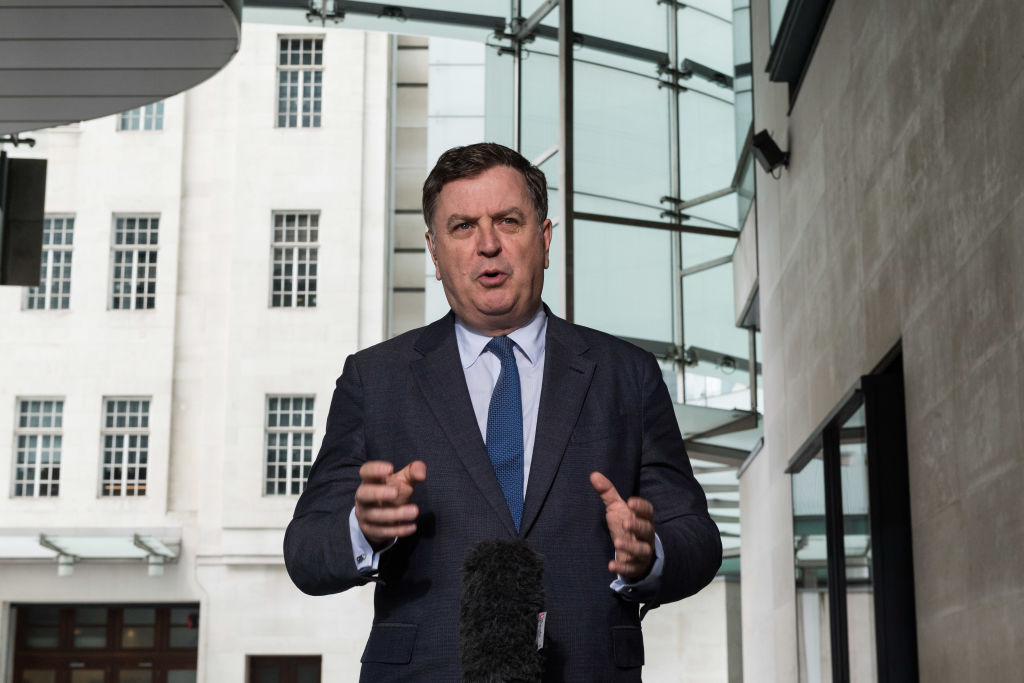This week Dominic Cummings said the Tories may have ‘crossed the event horizon’. He was trying to find a tech bro way of saying the game is up: they’re finished as an electoral force and it’s only Labour, Reform and the Lib Dems still in play. But might the Tories have one last chance? If they do, that chance will come from the economy.
Next week the shadow chancellor, Mel Stride, will try to make the case for the Tories being the party of economic responsibility in a keynote speech to the Royal Society for Arts, Manufactures and Commerce. ‘Our country faces significant and increasing challenges both at home and abroad,’ he will say. ‘Challenges that will require a far stronger economy if they are to be met. An economy that can only be delivered through a radical rewiring.’
This won’t be a speech announcing new policies, a Conservative source tells me, but will instead set out ‘the direction of travel, in stark contrast to Farage’s fantasy economics’. It’s all part of a ‘Get Nigel’ strategy, as James Heale pointed out on Coffee House yesterday, that both Labour and the Conservatives have realised is existential.
Stride will say:
People are angry with the main parties because we’ve had years of stagnation and people don’t feel better off – and they’re right to be angry – but Farage only offers cakeism that pretends there are easy answers to everything.
Yesterday Keir Starmer claimed Reform is ‘Truss on steroids’ as he attacked the idea of unfunded tax cuts. But all of this is surely missing the point. Whoever is to blame for the surging yields in gilt markets in the autumn of 2022 (and there’s a convincing argument that it was more to do with central bank mismanagement and persistent inflation than anything Truss did), the trust of the ‘bond vigilantes’ has not been won back. After every Budget and fiscal event since Truss, we’ve not seen the premium on UK debt removed by markets. The reason for this is simple: Britain’s spending and tax path is just not sustainable and pension funds, hedgers and investment bankers don’t consider the government’s plans to be fiscally responsible.
Labour has at least flirted with the concept of fiscal responsibility – cutting the benefits bill, reducing departmental spending – but at the first sign of resistance they seem to have decided to give this up, with their winter fuel U-turn and plans to scrap the two-child benefit cap. Reform too seem keen to unleash a benefits bonanza funded by mystical cuts to refugees there and asylum seekers here. So that’s where there’s a gap for the Tories.
While Reform and Labour soar above the Conservatives in polling, Rachel Reeves currently ranks among the least popular chancellors ever, and a recent YouGov survey puts the Tories level with the government on their perceived ability to manage the economy. Voters consistently rate the economy as the most important issue facing the country – so if the Conservatives can find a way to get the message across that they are the party of fiscal prudence then it just might be possible for them to weave a narrative that doesn’t see them completely wiped out at the next election. (The most popular chancellor just now is ‘don’t know’ on 76 per cent, so it really is all to play for there.)
That said, Reeves isn’t the first chancellor to leave herself painfully little fiscal headroom. The trend towards leaving less and less room has been continued by every Conservative incumbent of the role since ‘austerity’ Osborne.
It also shouldn’t be forgotten that it wasn’t just Truss’s unfunded tax cuts that upset markets, but the massive spending splurges the public came to demand, such as her £140 billion energy subsidy package.
So there may be some way to go before voters trust the Tories on the economy. But with everything else going south, the strategy Stride will outline next week may be the only path the Conservatives have left if they’re to avoid complete oblivion.







Comments